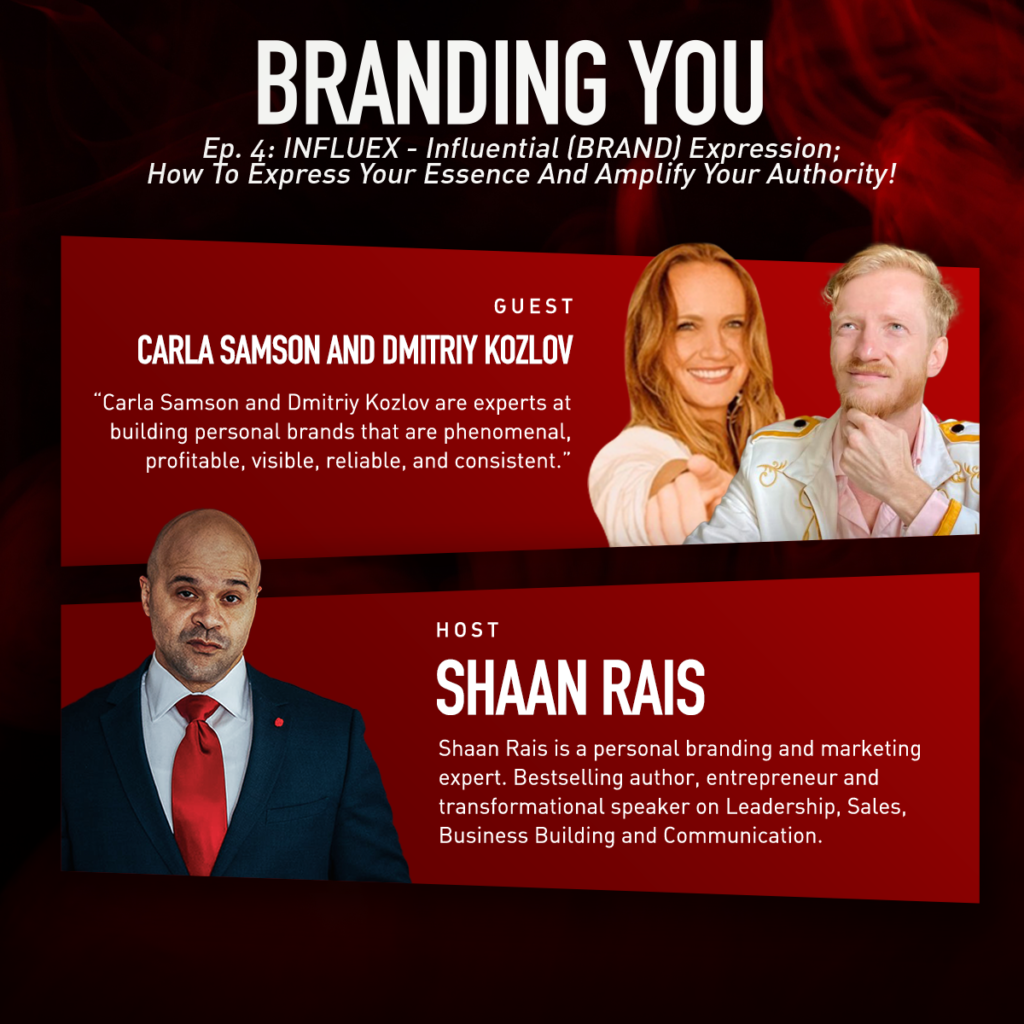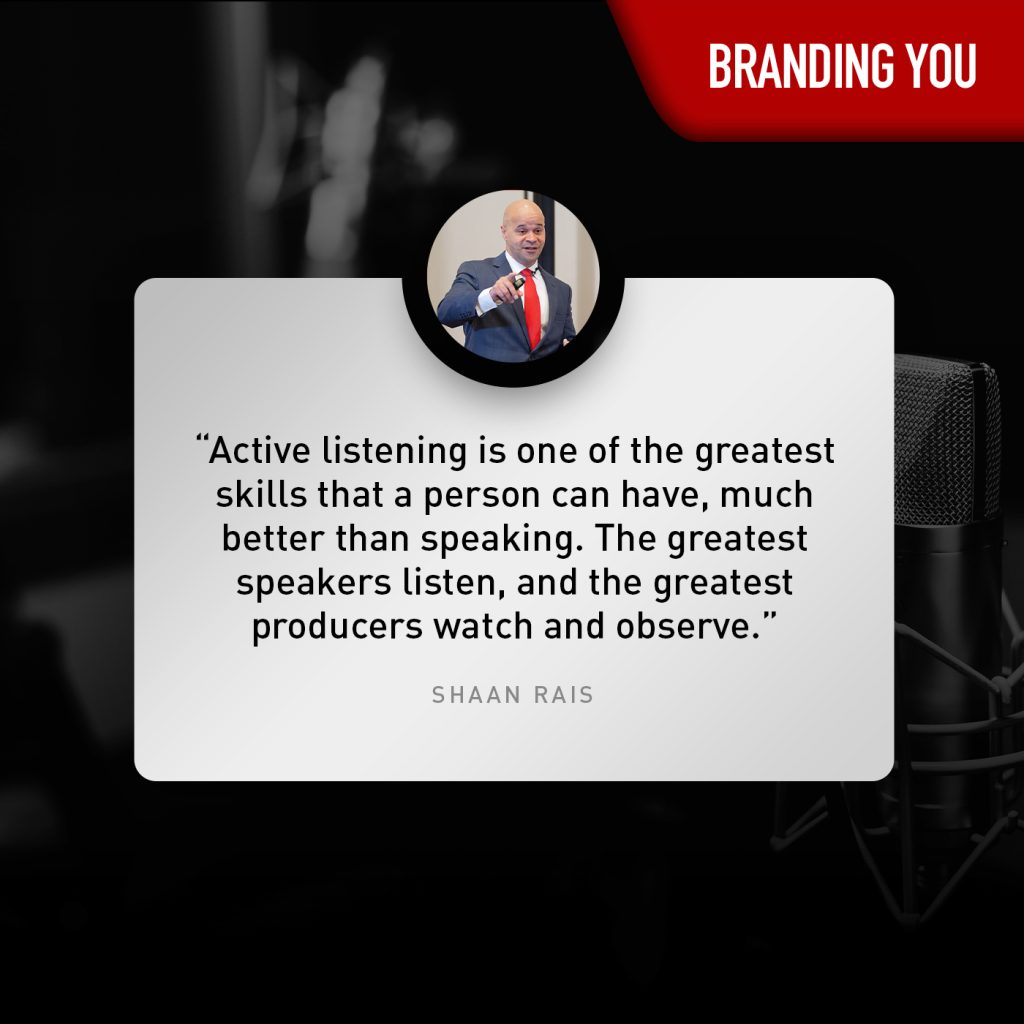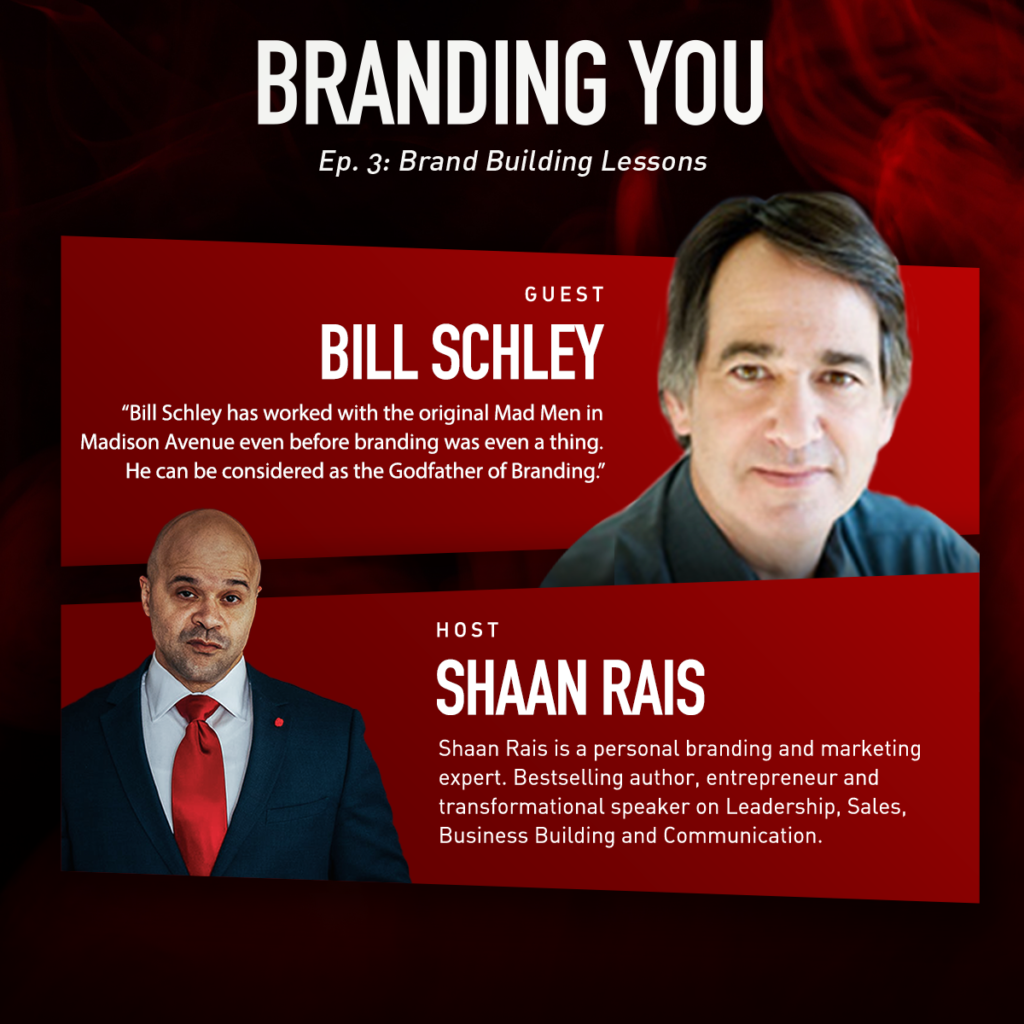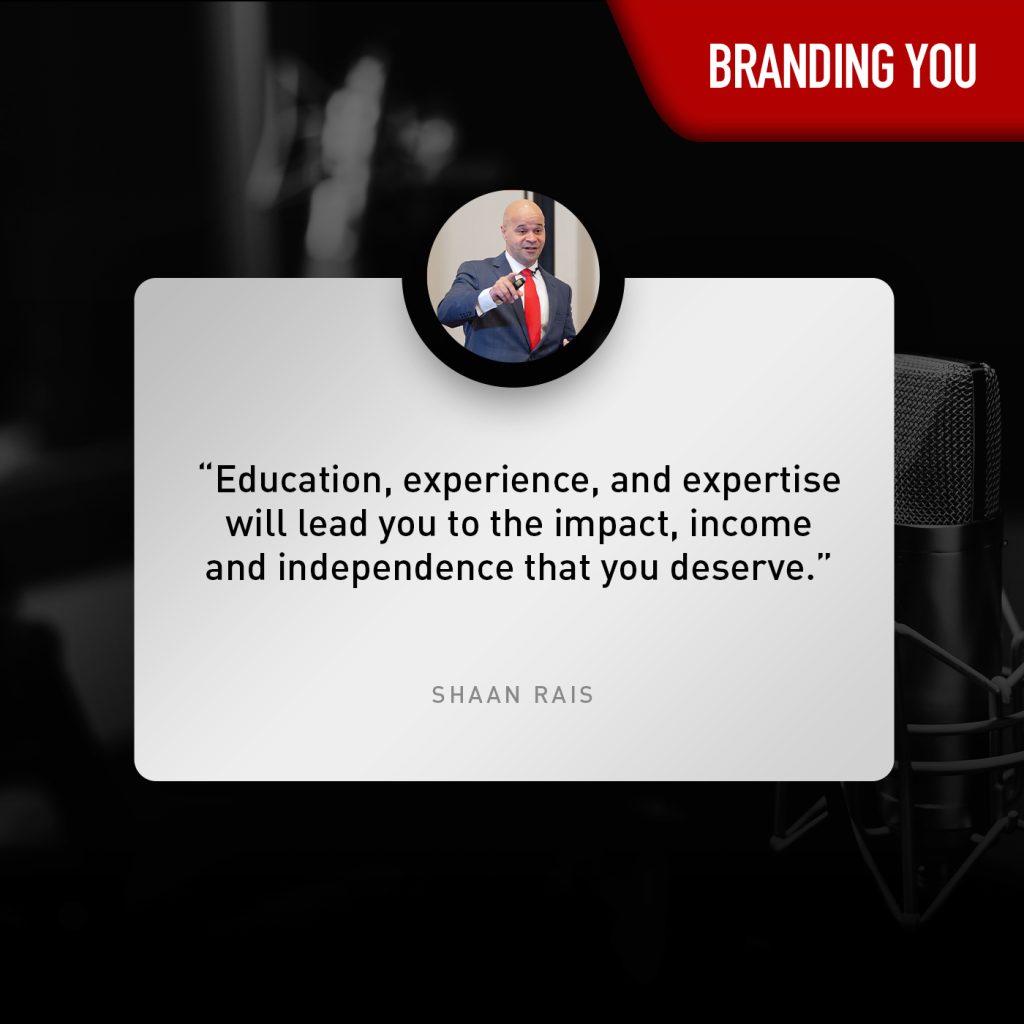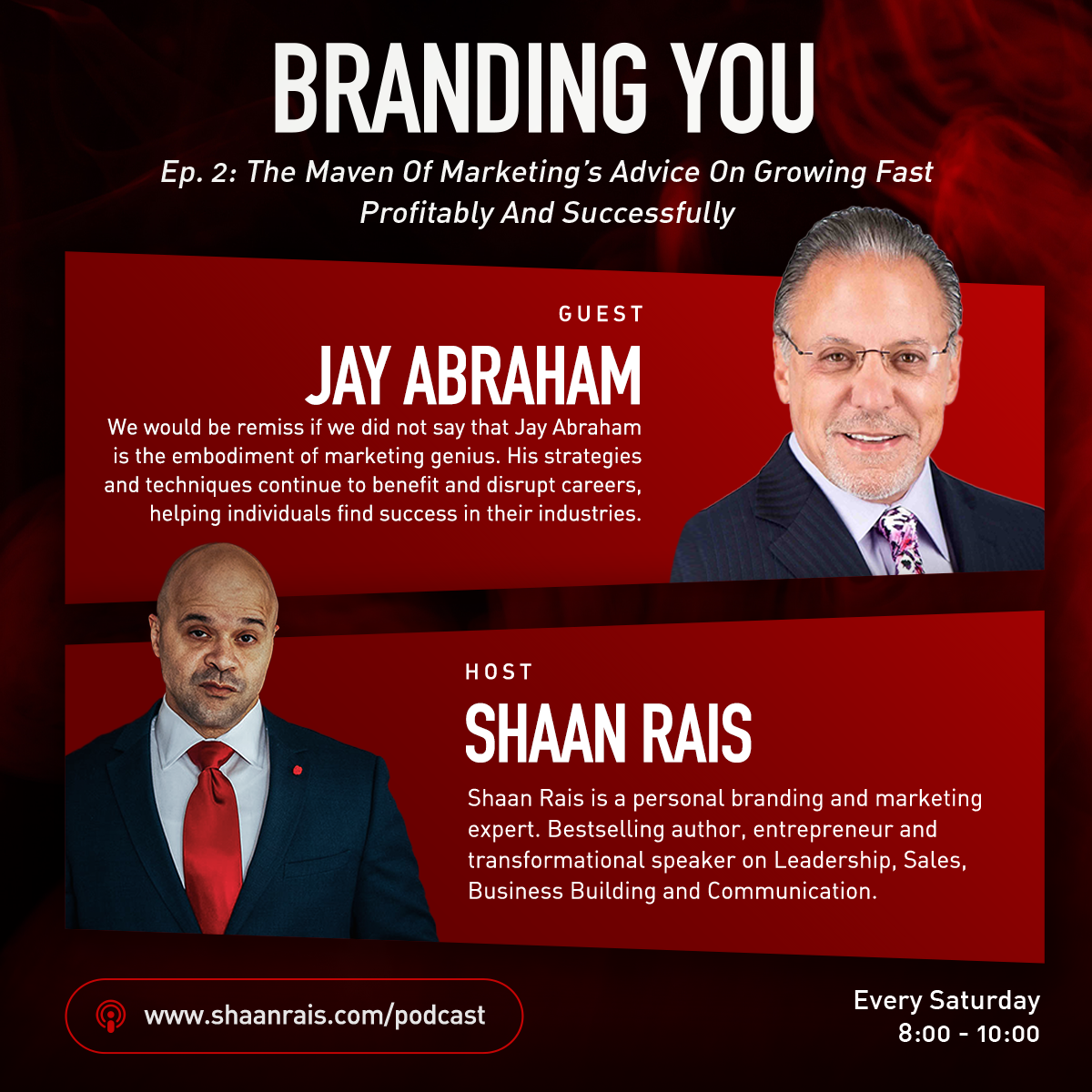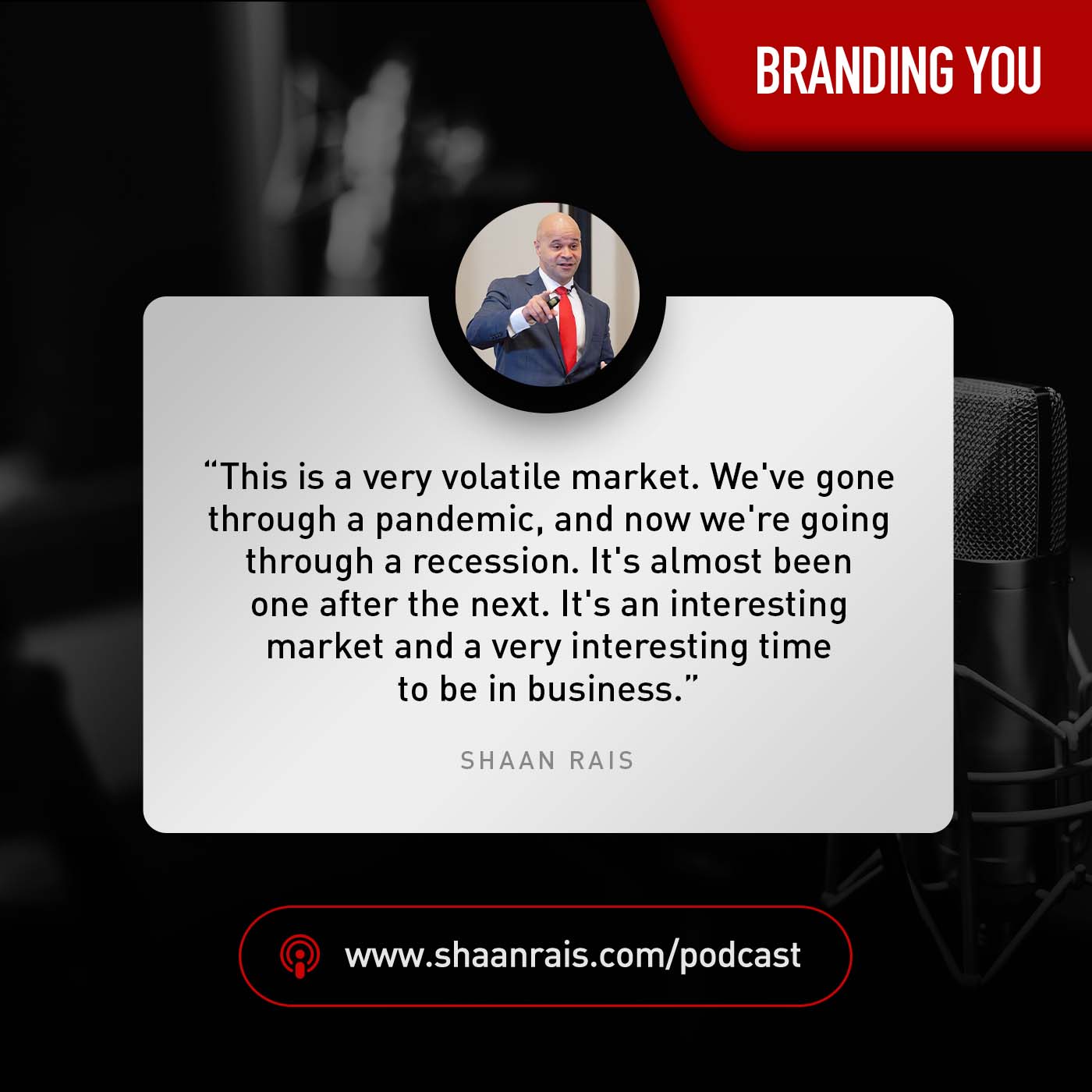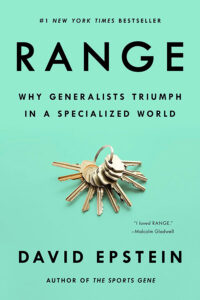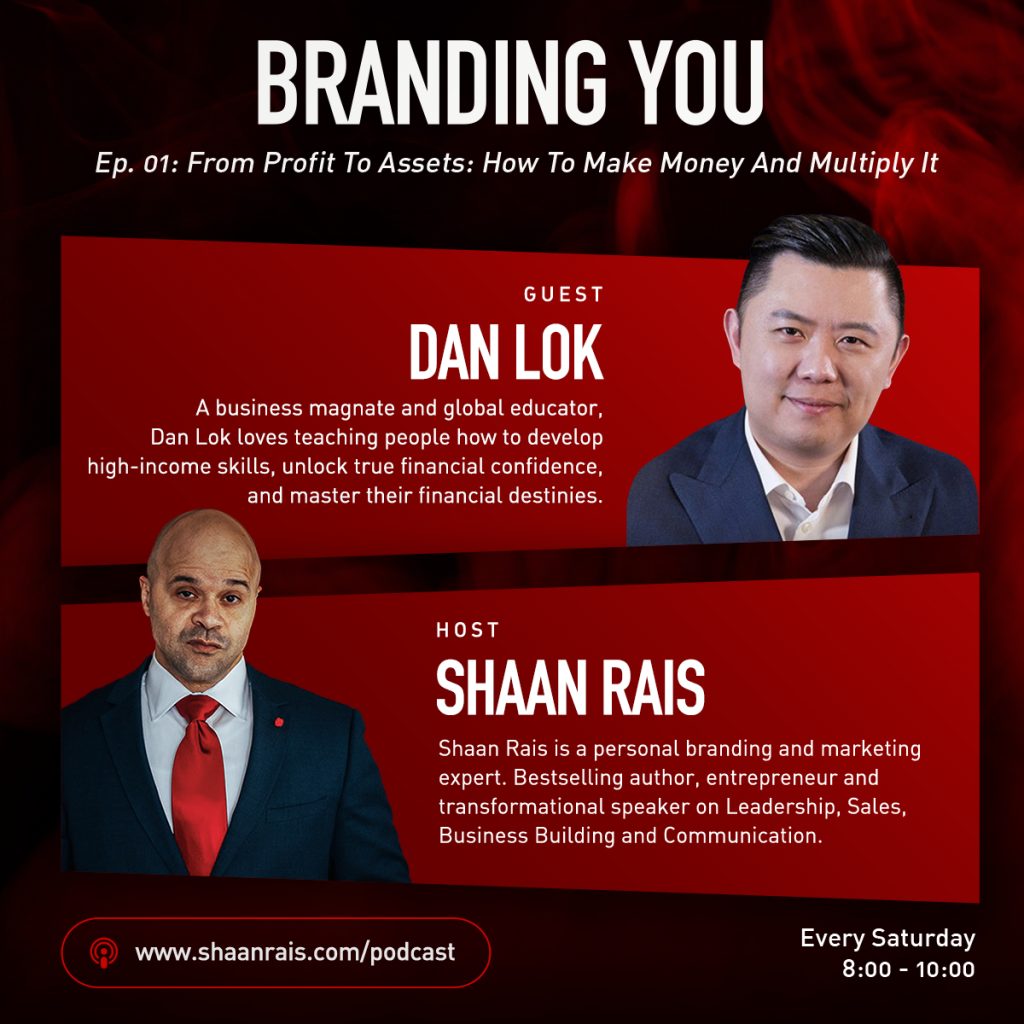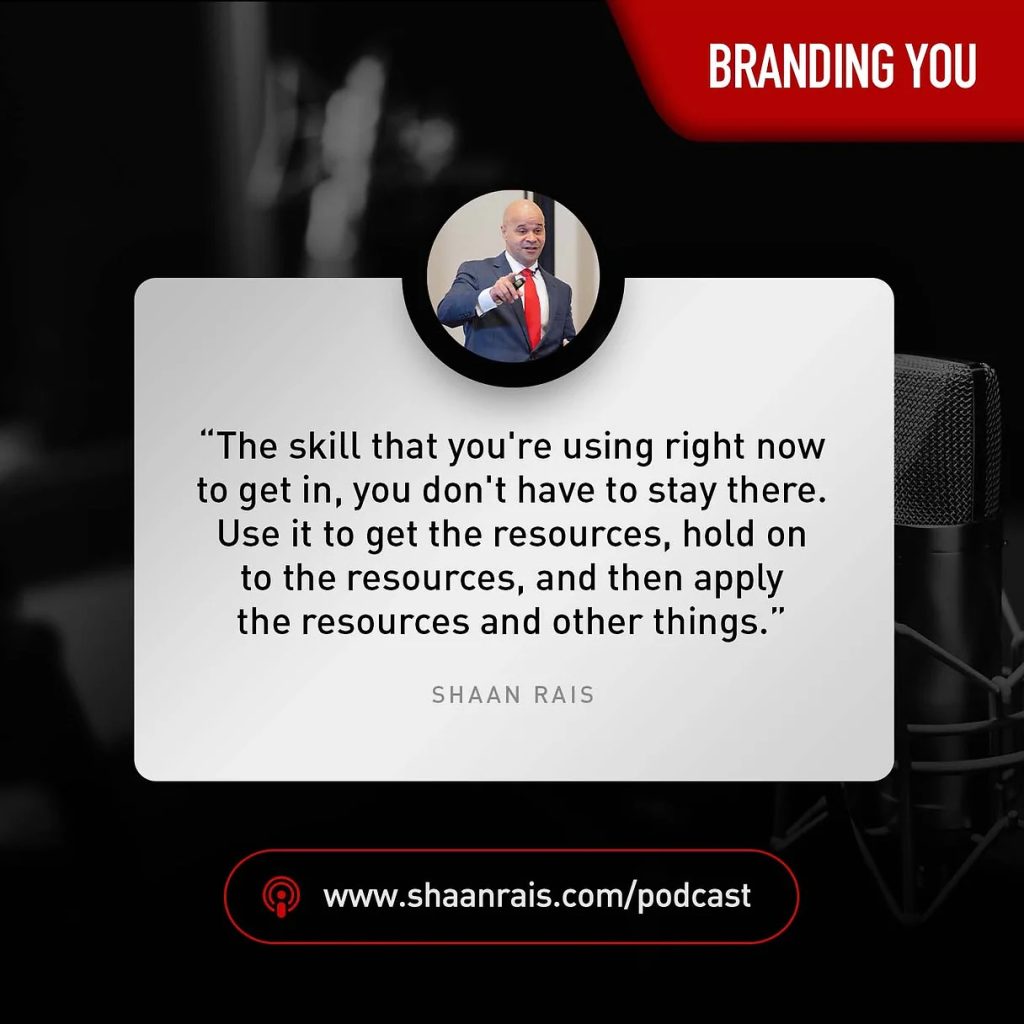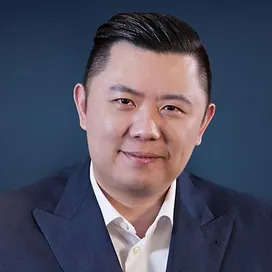I have with me the phenomenal Kendall Ficklin. Whether you know or do not know Kendall Ficklin, you will know him after this. I want you to grab your notebooks and pens because he is going to let you know how to change your business into one that is scalable, solves problems, and is community-minded. With no further ado, welcome to the show.
I appreciate it. I’m honored to be a part of the show. Lead and brand like a leader. I’m excited to do it with you, somebody that I know I respect. I’m honored to be here.
I want to set the tone with a little bit of a background for those who may not be acquainted with the Kendall Ficklin brand. How did they begin? Give us the origin story. What is the brand origin story of Kendall Ficklin?
This is funny because nobody has asked me this in a while. That’s a good question. Here’s something that I realized. I might have been about 9 or 10 years old. He was always drinking at the bar around the corner. I went to my father one day, and I said, “Pop, I want to take my shoeshine box around the corner. I want to shine shoes so I can make money at the bar.” He was like, “What shoeshine box?” I said, “I don’t have one. I’m going to make one.” He said, “If you can get a shoeshine box, you can come around with me when I go Friday to the bar.” I went and made a shoeshine box.
I didn’t look like this fancy shoeshine box, but I grabbed some wood and nails. I messed up my father’s whole toolbox. I put together what looked like a shoeshine box. I have no polish, brushes, or cloth. In my father’s bottom drawer in the bedroom, where he kept all his shoeshine stuff, I went and grabbed all his shoeshine stuff. When Friday came, I said, “I’m ready. What time are we going?” He said, “Let’s go now.” We went around to the bar.
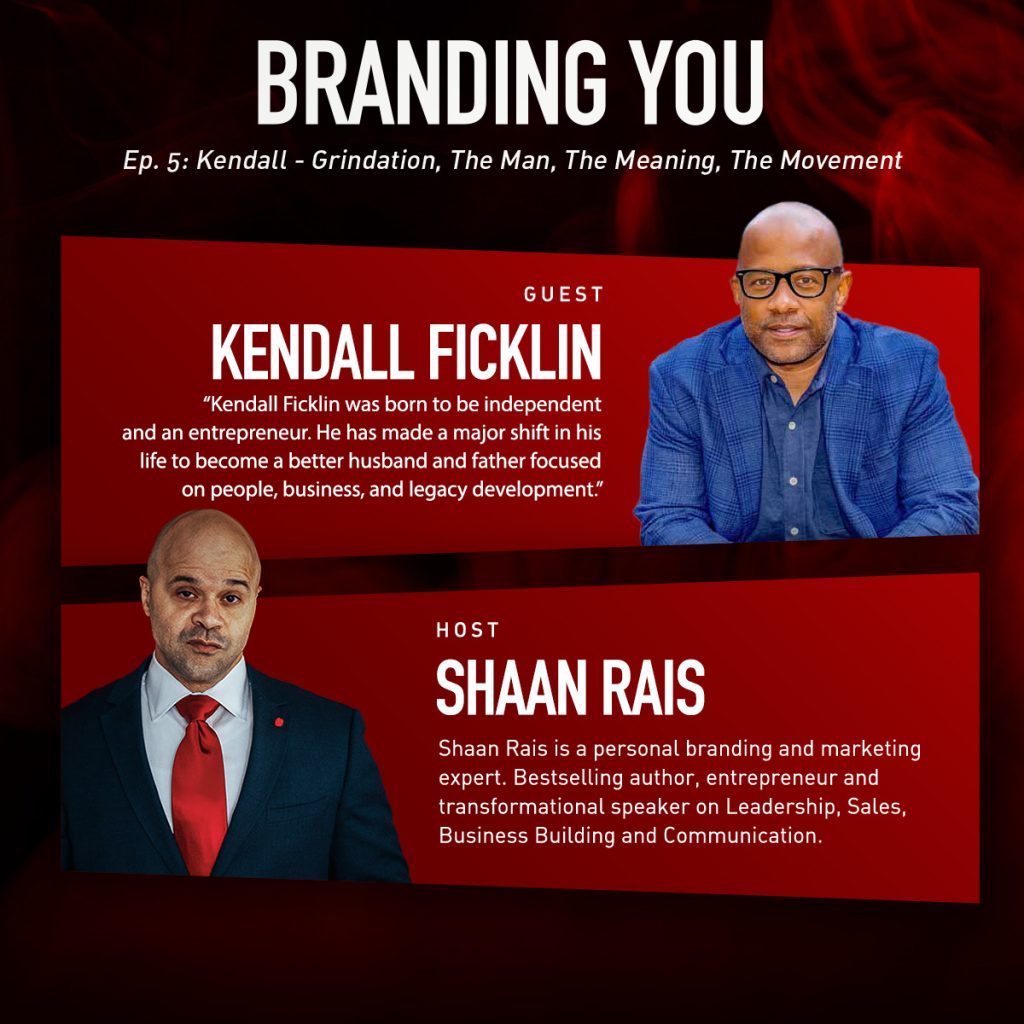
That night, I probably made about $55. Back then, it was local. My father was an alcoholic, but I had that entrepreneurial spirit even back then. I’m in there. All my friends were outside waiting for me after I was done. I left out, and I was excited. $55 to a 19-year-old feels like I’m a millionaire at that point.
Here’s what happened. I took all my friends to the corner store. We got those little juices and white diamonds on our street, which is equivalent to a diner. I bought them hamburgers. I cashed out all my friends. We had a great time. I looked in my pocket the next day and was like, “It’s light.” The next day, it was Saturday. I said, “Pop, can I go back again because I wanted to get some more money?” He said, “Yeah.” I went back again, made another $50, and did the same thing. I went back out with all my friends and cashed out.
I got smart. I went to my best friend. His name was Chuck. I said, “Chuck, do you want to make some money?” He said, “Yeah.” We were on 17th Street. There was another bar on 15th Street. I said, “I will help you make your shoe shine box and give you some polish. You go to the bar on 15th Street, and I will do 17th Street. We will meet up at a certain time and cash out. All I want is $0.50 or $1 off every shoe you shine.” He was like, “Great.” He went, did it, came back, and paid me. I stopped cashing out my friends. I went to my other friend, Leon. I said, “Leon, do you want to make some money?” He said, “Yeah.” I said, “I’m going to help you make it. I duplicated it.”
At an early age, 9 or 10, I didn’t know what I was doing, but my mindset was like, “I needed to go out and earn my own money as an entrepreneur. As I was growing it, I got to be careful of how I spent this money. How can I scale it?” I didn’t use those words at 9 or 10 years old, but I was building, growing, and scaling. That concept I took from 9 or 10 years old. We had a bike, skateboard, and other businesses. That mindset has stayed with me.
The story is from 9 or 10 years old. There were no entrepreneurs or businessmen around me. My father and mother worked from 9:00 to 5:00. Everybody in our family worked. It’s been inside of me to go out and create something for myself and put the people around me in positions to make money from it. Not only so that they could have something for themselves, but they didn’t need anything from me.
The friends who you were cashing out, you helped them cash themselves out. You didn’t have to cash them out anymore.
I’m making money. With the money we made from shoe shining, we got into the bike business. We started getting parts for bikes. We were making bikes. We would take the bikes and make the front end long, put the sissy bars on it, and the things on the back. We were tricking off bikes back then. That’s the way we did it. We made money.
We used to do picnics and things like that on the trail. We put all our money together and got a little mini bike that we all share. We would park it at each other’s houses at certain times of the week. We had a football league. We would have our uniforms. We were industrious and entrepreneurial without even knowing it.
That’s a phenomenal origin brand story. We know about the zones of life, 0 to 7, 7 to 14, 14 to 21, and 21 to 28. You gave us the background. You said 17th Street and 21st Street. Where are these different streets?
I grew up from birth to about 12 or 13 years old in Linden, New Jersey. I lived on 17th Street. We had 12th Street all the way up to 21st Street. Each block seemed like it had a different group of young people. We were on 17th Street. From 13 to 20, I lived in Newark, New Jersey. It’s a different concept, more of an urban neighborhood. It was the hood. You aren’t going outside and playing at night like I did in Linden, New Jersey.
I’m familiar. Those are two different worlds.
During that time, I was still industrious, but industrious doing other things. Here’s the crazy thing. This is the part that I loved about what my mom did. When I was 12 and 13 years old from Newark, New Jersey, I still went to school in Linden for the whole set. I would take the train and the bus by myself at 12 and 13 years old from Newark, New Jersey to Linden, New Jersey, every single day, early in the morning until it was late at night.
Sometimes, people will be afraid to take chances to go out on their own. It helped develop. It increased my risk tolerance and helped me to be aware of my surroundings, as well as gave me freedom and independence. She would give me a certain amount of money and I had to make that thing last. I had to be careful of how I spent money. I had to be creative. We would get the candy and sell the candy in school. I sell all these other things in school.
People are afraid to take chances to go out on their own. But by doing so, you increase your risk tolerance and become more aware of your surroundings.
She gave me an independent mindset, which is an entrepreneur, a leader, and a businessman’s dream. When you get that at 9, 10, 11, 12 on up, it prepares you for things in life. I didn’t do work in school, like most of us, not because I was dumb. I was lazy mentally. I graduated high school with straight Ds. On graduation day, my family was there. I walked across the stage. I don’t even think I got the diploma now.
Did you say you graduated with straight Ds?
I was supposed to go to summer school. My English teacher said, “I am going to let you walk because I like you and I know you are not dumb. You are lazy.” I got a better word than I realize now. It’s living on average. Living and eating average. Nobody around me was pushing me. For mom, if I was playing ball, as long as I had a C average, I didn’t have to do any work. If the teachers like you, they are going to let you. My English teacher said, “You fail. I’m going to give you a D so you can walk.”
They gave me a little envelope. I don’t even think I still have my diploma. It wasn’t in there. I had to go do something to get it. I graduated and walked across the stage. My mother came up to me. She said, “I’m leaving.” I was like, “Where are you going? Are you going out somewhere?” She said, “No, I’m with my fiance. I’m going to go move in with him. You have the apartment. The rent was $360 a month, and rent is due next week.”
I didn’t have a job or anything, but I was raised to be that independent of I can make it happen. She left. Luckily, I went to AT&T. They had career days. I got a job at AT&T because I passed the typing test. My mother made me take typing. At that time, I could type 35 words a minute. It took me to the help desk at AT&T. There are some people who are born leaders. We need to be taught characteristics, skillsets, and training in certain areas. Some people are born to be entrepreneurs. You need to learn the different nuances.

I was born to be an independent and entrepreneur. I got the job at AT&T, and it was miserable. I would be in AT&T selling sweatsuits, selling books in my cubicle, doing different businesses, and always looking for a way out. I finally got my first real business at that time, which was a cleaning business, a franchise, bought into it. I blew the franchise up. I had all the Starbucks in New York and New Jersey, every one of them, 71 stores, and 9 sports authorities. I had 25 people working for me, 6 trucks. Do you know what I didn’t have? Money management skills.
How many of you do that? How many of you have 21 browsers up? You are finishing your book. You are doing your thing on Facebook. You have all these different businesses going on. What he said was pertinent. He said he had 25 people working for him, multiple Starbucks, and multiple sports authorities. Money is coming in. However, he has no money management skills.
I believe that some of us are born to be entrepreneurs, but what we don’t do is learn certain skillsets, like the skillsets that you teach. You train people and coach people. I didn’t have that. This is back in the ‘90s. There wasn’t that. I could get business. I knew how to get workers and get the work done, but I didn’t know what to do with the money when it came in.
I was bringing in thousands of dollars every month, but it seemed like every month, I had to call my sister and ask her for money to help me make payroll. It seemed like I would have to leave and go clean some extra carpets to take care of my young family at that time. I knew how to get business and make money, but I didn’t know how to keep and manage it. For a lot of us, it is that piece that is a huge gap because there are a lot of great entrepreneurs and leaders, but we are not taking the time to master the craft. I was able to, inside that cubicle, build multiple six-figure cleaning business.
I made a big mistake, but looking back on it, it wasn’t that big. I said, “Now is my opportunity to get out of this 9:00 to 5:00.” I told somebody this. This is crazy. My manager lived in a different state back then. I had no work to do. He was cool. I would call him up in the morning. He says, “I don’t care what you do. Make sure you check in.” I said, “No.” Back then, I was doing $65,000 at AT&T. I’m a manager. I didn’t have any people reporting to me. I could do whatever I wanted to do.
It sounds like you had what they call a no-show job.
My common sense said, “That’s free money. I want to leave.” I get it. I was young. I wanted to be on my own. When I left, it was difficult. I was married. I had two kids at that time. I was the breadwinner. My family struggled and sacrificed for my dream. Here’s the way I look at it. There are entrepreneurs and leaders, but there are men. I wanted to be an entrepreneur, but I was neglecting me being a man, a husband, and a father at that time. My focus was only on going and making money. It wasn’t what is this going to do to my wife and my kids. That’s a big lesson that I learned.
I learned so much from that time. It taught me a lot of lessons, even to this day. One lesson is nothing comes before your manhood. This is the order. You are a man, leader, husband, father, or however that goes. Everything else comes after that. My business success is a result of my leadership and manner. My mindset is if my wife is happy, I’m happy. If I’m taking care of my family financially and emotionally and protecting them, I’m doing my job.
Nothing comes before your manhood. Your business is a result of your leadership and your identity as a man.
I’m hearing maturity, development, and leadership development by default and by hard consequences. I know you didn’t allude to the consequences, but a lot of times, when you are in flow, or you are in process, we get course corrected by a crisis. The crisis course corrects. Comfort is not a precipitator to change. Your comfort does not predicate transformation. Transformation, a-ha moments, and change usually come on the back of crisis and disruption. It sounds like there was a disruption that took place around where and when was that in your evolution?
The biggest disruption was the same lesson that I learned from not managing the money in the business carried over into my personal life. Financially, I couldn’t keep a place.
I don’t want to interrupt you, but I want to take a note and underline something. When you give someone a book and underline something for them, I want everybody to pay attention to not transferable skills but the transference of the lack of skills. There’s a money management gap in the early onset of business development, but there is a transference of the lack of prioritizing the most important things in early adulthood and the family development piece.
What happened was I would take house money that should have been going to take care of the house bills and put it into the business. I had to put it into the business because I wasn’t managing the money that was coming in from the business.
We go home and give the check to the wife. We came back and took the check out of the house.
Let me add another layer to that. I wasn’t given the check to the wife because of my ego. While I was a leader, I was immature in my leadership. You got to peel back this onion. I was leading, but I was immature in my leadership because I didn’t think that anybody could do it the way that I could do it.
We choose where we want manhood to appear. This is why everybody who’s reading, we focus on fully rounded 360-degree leadership development, not one phase. I was speaking with someone who was doing an event. She was talking about holistic business. The word holistic comes to my mind as I think about holistic leadership development.
Kendall, you are talking about leading on many fronts. You have done many phenomenal things. You have this phenomenal business. You are helping 25 other people who are under your leadership to earn an income and become independent on their own. At the same time, there’s a crutch or gap. Let me ask you this. When you recognized it, what did you do?
I’m going to be honest. Back then, when I recognized it, I didn’t know what to do. You have to remember. It’s not like now. There was no social media. You couldn’t go to a podcast and start listening to stuff. It was that guy that came on late-night cotton sheets selling or Tony Robbins selling something like he said, “You isn’t going to get it for six weeks in the mail.” There wasn’t none of that. There was no mentor because nobody had their own business.
I was hanging around 9:00 to 5:00. This is the other piece. For you to be a true leader, you have to be willing to not only go alone, you have to be a disruptor. While you are disrupting, you have to identify who can mentor me while I’m going down this road. I didn’t do that. I identified it but I didn’t know how to fix it. I kept drinking. I have bad character and habits. I don’t drink now, but back then, yes.

I heard you say that your father was an alcoholic.
I’m a womanizer at that point. I’m married but I’m womanizing. I’m looking as if I’m going through the stress and the pain of bad character for myself, which means I’m making bad decisions for my business, family, and life. I don’t know what to do. I’m looking for that substitute, like alcohol, other women, and being gone from home. I’m running from something I’m never going to get away from. It wasn’t until it all blew up that years went by, and now I’m divorced.
At that time, when I went through a divorce with my ex-wife, we had three children. I’m breaking up not only a marriage but I am breaking up a family that wasn’t stable in the first place. Why? It’s because my mindset was focused on making money, not entrepreneurship. I’m going to be real. I don’t even necessarily like the word entrepreneurship. I’m not focusing on building a business.
In my maturity, when I work with people, this is what I say, “Let’s design a life that will allow you to build the business.” That means the concept, “Be a whole man. Be a whole leader. Be a whole CEO.” That means physically, mentally, emotionally, and soulfully, I’m pouring into and feeding all four parts of those. Inside all of those, there are different buckets that need to be filled up.
I love what you said about life first. I always tell people, “Start with your ideal life. Set that up, income level, time off, the code, and the car.” Ideal life and an ideal business model to support that as opposed to how can I make money and make it as fast as possible and try to fit a life somewhere around that if I get around to it, which never happens.
Let’s be honest. Whatever you put energy into, you are going to get something back. I could be an alcoholic and have women all over the country. As long as I’m putting work into building a business, I’m going to make money. That doesn’t mean I’m going to make the right decisions and choices. That’s the difference.
That’s why you can have people making illegal money and making tons of it. For some, it may last until they pass. For some, it doesn’t. It’s not about I got to do this to make money. You can make money as long as you put the work in. How much you make and keep will be determined by the consistency of your character and the choices you make in your decision-making.
Talk to the people, the phenomenal readers, about the importance of character development when it comes to business sustainability.
I can give you a good real-life example. We talked about that first business of mine, the cleaning business, all of the money to people. That folded. I sold it. I didn’t make any money, but I had to get rid of it. I took a big loss. I moved to Atlanta with my ex-wife. She was my wife at the time with my three children.
I didn’t fix the character defects and develop the leadership skills I needed. I came to the same man from New Jersey to Atlanta with the same bad character, bad decision-making, and addictive tendencies. I talked myself into a contract at Georgia Pacific. I told them, “I run a consulting company. We do technical support. I learned all this technical stuff from AT&T. I can take over your whole help desk.” It worked. If you put energy into it, you can get contracts and make money. I got a bunch of guys, and we built the Georgia Pacific help desk from scratch. They were paying me ridiculous amounts of money. I’m making money, but I have bad habits.
You are making money again, and the same guy comes out. What happens now?
I’m tricking off money. They gave me my first corporate card to do whatever. Guess what I’m doing with the corporate card? I’m at the strip club at lunchtime and not even going back to work. I’m buying clothes. Guess what I’m not doing? I’m not taking care of home. What’s happening is I’m developing and making money. I’m making bad choices. I’m still in the same cycle I have been in my whole life up to that point. I’m not realizing that.
There are readers here that will say, “I’m a leader. I’m a CEO. I need to upgrade my position. I’m trying to build a business. I need to do this so I can make money.” The first thing you need to do is not focus on what you need to do but put the emphasis on who you need to be. I’m using the corporate card. They came to me one day. They were like, “Enough is enough.” This is the second time I did this. I did the same thing at AT&T in the ‘90s. I abuse the corporate card.
Do not simply focus on what you need to do. Put the emphasis on who you need to be.
They are seeing the swipes. Where are the swipes?
I don’t even know it. They are like, “I paid an electric bill with the corporate card at the house.” My whole life, I have always had what I call grace, which means even when I make these big mistakes, there’s always something or somebody there to help me come out. As for my ego, bad character, and addictions, I kept doing the same things.
Even when I did the same things in New Jersey, even in Atlanta with Georgia Pacific, I had an out. They said, “We are going to let this slide. You have X amount of time to get yourself together. Don’t let it happen again.” I had racked up about a $5,000 bill. They said, “As long as you pay it by the next billing cycle, you are good.” The money came through my hands, but guess what I didn’t do?
You didn’t pay for it. You didn’t have your responsibilities yet again. What happened with that situation?
They had to let me go. It was a sweet deal. I leave there. The marriage is on the rocks. We separated one sweat. I don’t know what to do. I always knew how to cut hair. I have been cutting hair since I was fifteen years old. I said, “Let me go into the shop and cut hair.” I got into a barber shop. I was okay. I saw these guys making $600, $700, $800, to $1,000 a day. I got my skills up and started generating $400 or $500 a day by cutting hair. I’m making money. I still had bad habits.
I said to myself, and I still go back to the young boy who had the shoe shine box. I was like, “I can only make much money if I’m cutting hair. There’s only so much hair I can cut. I need to open up my barbershop.” I went to the owner of the shop. I said, “I’m about to leave and open up my shop.” He asked me a question I will never forget. He said, “Have you maxed out your chair?” I said, “What do you mean?”
He said, “My chair makes me $2,500 a week. It’s maxed. I can’t do any anymore because of time, capacity, and bandwidth. What does your chair make?” At the time, I was making about $1,100 to $1,200 a week. He said, “How much more can your chair make?” I said, “I could do $2,000 to $2,200.” He said, “I recommend before you leave to max out the chair.” Guess what I did?
You left.
Ego now cried. I opened up my first shot. I didn’t have the money to open it. There is always something somebody did. I wrote the guy a $1,200 check to get in. I knew the money wasn’t in the bank. I don’t think he cashed that check to this day. That was back in 2003. I knew how to make money and cut hair. All my clients came with me because I’m great with people. I’m bad with money and making business decisions. My people came, but I had three other chairs. I couldn’t find barbers to stay in the chairs. We didn’t get traffic coming into the shop.
I had put a sign up out front. We were right on the highway. It is a great location. I had this older gentleman working there with me. On the front of the sign, it was called Xchange barbershop. They used to call me X. A couple of months went by, and I said to the older gentleman, “We are still not getting traffic.” He said, “You know why, don’t you?” He’d been in the retail business for years. I said, “No.” He said, “Nobody is looking for Xchange? They are looking for a barbershop.”
Marketing, branding, and flow. Would it be safe to say that the Xchange piece with you being called X was an ego decision?
It was all ego because I had Xchange in big letters and barbershop in little letters. I had the light on Xchange and nothing on the barbershop. Look what I did. I changed the sign to barbershop. It floods of people coming in. Now, we are making money, but I’m not putting the money away to pay the rent.
The character is showing up again.
I have to leave now. I get a salon suite and build back up. All my clients stay with me because I’m great. I’m good at cutting hair. I’m great with people.
Good on the relationships, bad on the revenue and responsibilities. Let’s look at it.
I get in the salon suites. I got two chairs in there. The older guy came with me. He pays me weekly. I’m paying them weekly. The bad character kicks in. I see a shop across the street to open it. I said, “I’m going to open that shop. I needed $3,600.” Somebody gave me $5,000 and said, “We believe in you. Opened up shop number two.” I’m killing it. I have six chairs. Guess what?
The character shows up again.
I got to leave and sell it to the old guy who was with me. At that point, I could have stayed in the shop and cut hair for free. All of the money would have been mine. Guess what kicked in after that? It’s my ego again. I found another spot right around the corner. It’s $2,600 a month. It’s more than I ever paid. I didn’t have the money to open that. One of my clients said, “I will invest with you. Here’s $10,000.” I open up the shop. Guess what happened?
You got this demon, ghost, thing, and energy. You are trying to run it, outrun it, escape it, drink it away. All of these different things you are trying to do to outrun ourselves. When was the meeting of mind, maturity, and manhood? Where did that happen?
It was always inside of me. When I was drinking, I would get drunk, look in the mirror, talk to myself, and say, “You know that you can do better.” I promise you this is true. I was like, “For you to be the man that you are supposed to be, you got to stop doing this.” I would say it. I would tell myself, “I’m going to stop.” I will never forget one night, and this is where the, you said, in crisis is where what happens?
Transformation takes place in the place of crisis. It’s not going to come from comfort. As long as you are being given grace, you are going to be gracefully forgotten and incomplete. You are going to continue. It’s enabling. There’s a saying, and my wife says this all the time. She does this to me because I have a big heart and I like to help people.
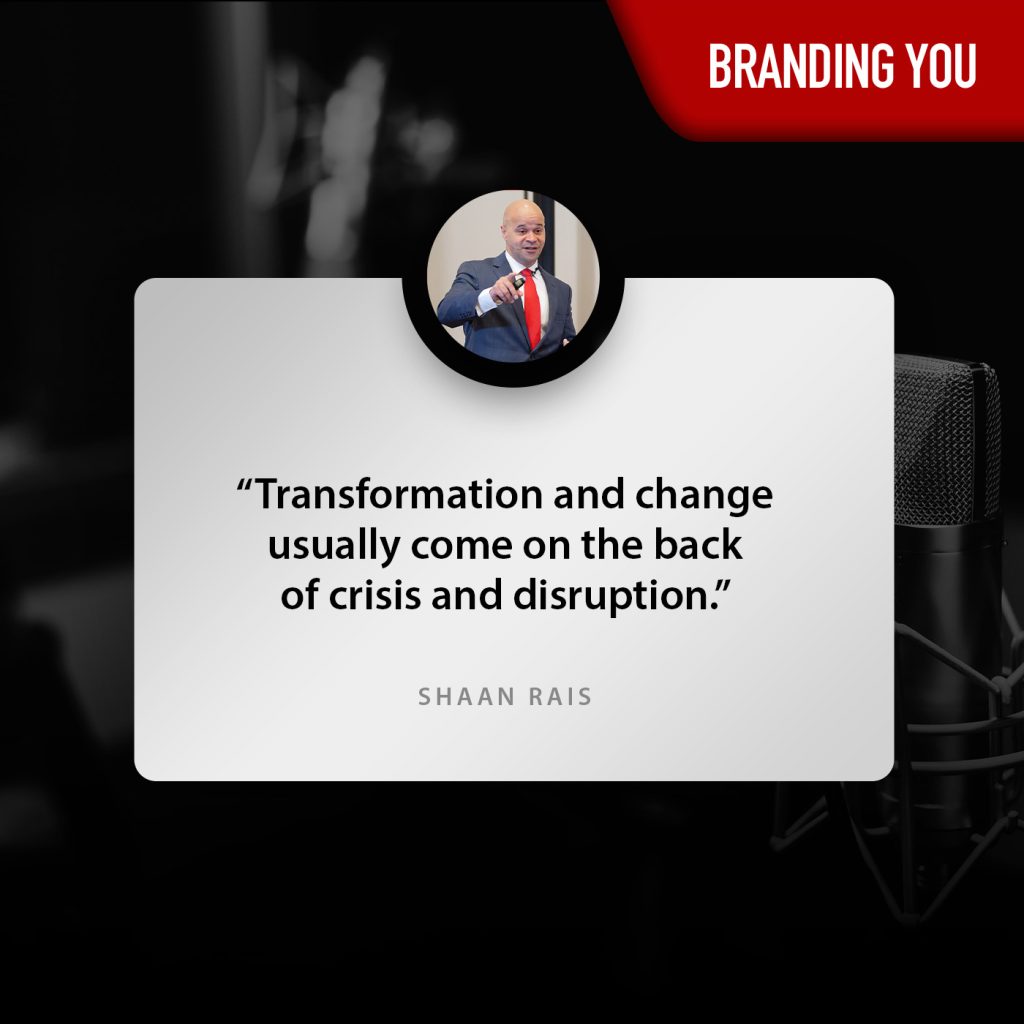
I will stop for somebody on the road. I remember she stopped me a couple of times from doing that. She was like, “No, leave them alone.” I’m like, “What do you mean? They got it flat.” She’s like, “No, you don’t want to get between what they and God got going on.” All of those crises that you came to were positions or whatever you believe in your situations was positioning you for the crisis and transformation on the other end of it. Someone kept getting in between what you and God had going on.
I appreciate it. I’m honored to be a part of the show. Lead and brand like a leader. I’m excited to do it with you, somebody that I know I respect. I’m honored to be here.
I want to set the tone with a little bit of a background for those who may not be acquainted with the Kendall Ficklin brand. How did they begin? Give us the origin story. What is the brand origin story of Kendall Ficklin?
This is funny because nobody has asked me this in a while. That’s a good question. Here’s something that I realized. I might have been about 9 or 10 years old. He was always drinking at the bar around the corner. I went to my father one day, and I said, “Pop, I want to take my shoeshine box around the corner. I want to shine shoes so I can make money at the bar.” He was like, “What shoeshine box?” I said, “I don’t have one. I’m going to make one.” He said, “If you can get a shoeshine box, you can come around with me when I go Friday to the bar.” I went and made a shoeshine box.
I didn’t look like this fancy shoeshine box, but I grabbed some wood and nails. I messed up my father’s whole toolbox. I put together what looked like a shoeshine box. I have no polish, brushes, or cloth. In my father’s bottom drawer in the bedroom, where he kept all his shoeshine stuff, I went and grabbed all his shoeshine stuff. When Friday came, I said, “I’m ready. What time are we going?” He said, “Let’s go now.” We went around to the bar.

That night, I probably made about $55. Back then, it was local. My father was an alcoholic, but I had that entrepreneurial spirit even back then. I’m in there. All my friends were outside waiting for me after I was done. I left out, and I was excited. $55 to a 19-year-old feels like I’m a millionaire at that point.
Here’s what happened. I took all my friends to the corner store. We got those little juices and white diamonds on our street, which is equivalent to a diner. I bought them hamburgers. I cashed out all my friends. We had a great time. I looked in my pocket the next day and was like, “It’s light.” The next day, it was Saturday. I said, “Pop, can I go back again because I wanted to get some more money?” He said, “Yeah.” I went back again, made another $50, and did the same thing. I went back out with all my friends and cashed out.
I got smart. I went to my best friend. His name was Chuck. I said, “Chuck, do you want to make some money?” He said, “Yeah.” We were on 17th Street. There was another bar on 15th Street. I said, “I will help you make your shoe shine box and give you some polish. You go to the bar on 15th Street, and I will do 17th Street. We will meet up at a certain time and cash out. All I want is $0.50 or $1 off every shoe you shine.” He was like, “Great.” He went, did it, came back, and paid me. I stopped cashing out my friends. I went to my other friend, Leon. I said, “Leon, do you want to make some money?” He said, “Yeah.” I said, “I’m going to help you make it. I duplicated it.”
At an early age, 9 or 10, I didn’t know what I was doing, but my mindset was like, “I needed to go out and earn my own money as an entrepreneur. As I was growing it, I got to be careful of how I spent this money. How can I scale it?” I didn’t use those words at 9 or 10 years old, but I was building, growing, and scaling. That concept I took from 9 or 10 years old. We had a bike, skateboard, and other businesses. That mindset has stayed with me.
The story is from 9 or 10 years old. There were no entrepreneurs or businessmen around me. My father and mother worked from 9:00 to 5:00. Everybody in our family worked. It’s been inside of me to go out and create something for myself and put the people around me in positions to make money from it. Not only so that they could have something for themselves, but they didn’t need anything from me.
The friends who you were cashing out, you helped them cash themselves out. You didn’t have to cash them out anymore.
I’m making money. With the money we made from shoe shining, we got into the bike business. We started getting parts for bikes. We were making bikes. We would take the bikes and make the front end long, put the sissy bars on it, and the things on the back. We were tricking off bikes back then. That’s the way we did it. We made money.
We used to do picnics and things like that on the trail. We put all our money together and got a little mini bike that we all share. We would park it at each other’s houses at certain times of the week. We had a football league. We would have our uniforms. We were industrious and entrepreneurial without even knowing it.
That’s a phenomenal origin brand story. We know about the zones of life, 0 to 7, 7 to 14, 14 to 21, and 21 to 28. You gave us the background. You said 17th Street and 21st Street. Where are these different streets?
I grew up from birth to about 12 or 13 years old in Linden, New Jersey. I lived on 17th Street. We had 12th Street all the way up to 21st Street. Each block seemed like it had a different group of young people. We were on 17th Street. From 13 to 20, I lived in Newark, New Jersey. It’s a different concept, more of an urban neighborhood. It was the hood. You aren’t going outside and playing at night like I did in Linden, New Jersey.
I’m familiar. Those are two different worlds.
During that time, I was still industrious, but industrious doing other things. Here’s the crazy thing. This is the part that I loved about what my mom did. When I was 12 and 13 years old from Newark, New Jersey, I still went to school in Linden for the whole set. I would take the train and the bus by myself at 12 and 13 years old from Newark, New Jersey to Linden, New Jersey, every single day, early in the morning until it was late at night.
Sometimes, people will be afraid to take chances to go out on their own. It helped develop. It increased my risk tolerance and helped me to be aware of my surroundings, as well as gave me freedom and independence. She would give me a certain amount of money and I had to make that thing last. I had to be careful of how I spent money. I had to be creative. We would get the candy and sell the candy in school. I sell all these other things in school.
People are afraid to take chances to go out on their own. But by doing so, you increase your risk tolerance and become more aware of your surroundings.
She gave me an independent mindset, which is an entrepreneur, a leader, and a businessman’s dream. When you get that at 9, 10, 11, 12 on up, it prepares you for things in life. I didn’t do work in school, like most of us, not because I was dumb. I was lazy mentally. I graduated high school with straight Ds. On graduation day, my family was there. I walked across the stage. I don’t even think I got the diploma now.
Did you say you graduated with straight Ds?
I was supposed to go to summer school. My English teacher said, “I am going to let you walk because I like you and I know you are not dumb. You are lazy.” I got a better word than I realize now. It’s living on average. Living and eating average. Nobody around me was pushing me. For mom, if I was playing ball, as long as I had a C average, I didn’t have to do any work. If the teachers like you, they are going to let you. My English teacher said, “You fail. I’m going to give you a D so you can walk.”
They gave me a little envelope. I don’t even think I still have my diploma. It wasn’t in there. I had to go do something to get it. I graduated and walked across the stage. My mother came up to me. She said, “I’m leaving.” I was like, “Where are you going? Are you going out somewhere?” She said, “No, I’m with my fiance. I’m going to go move in with him. You have the apartment. The rent was $360 a month, and rent is due next week.”
I didn’t have a job or anything, but I was raised to be that independent of I can make it happen. She left. Luckily, I went to AT&T. They had career days. I got a job at AT&T because I passed the typing test. My mother made me take typing. At that time, I could type 35 words a minute. It took me to the help desk at AT&T. There are some people who are born leaders. We need to be taught characteristics, skillsets, and training in certain areas. Some people are born to be entrepreneurs. You need to learn the different nuances.

I was born to be an independent and entrepreneur. I got the job at AT&T, and it was miserable. I would be in AT&T selling sweatsuits, selling books in my cubicle, doing different businesses, and always looking for a way out. I finally got my first real business at that time, which was a cleaning business, a franchise, bought into it. I blew the franchise up. I had all the Starbucks in New York and New Jersey, every one of them, 71 stores, and 9 sports authorities. I had 25 people working for me, 6 trucks. Do you know what I didn’t have? Money management skills.
How many of you do that? How many of you have 21 browsers up? You are finishing your book. You are doing your thing on Facebook. You have all these different businesses going on. What he said was pertinent. He said he had 25 people working for him, multiple Starbucks, and multiple sports authorities. Money is coming in. However, he has no money management skills.
I believe that some of us are born to be entrepreneurs, but what we don’t do is learn certain skillsets, like the skillsets that you teach. You train people and coach people. I didn’t have that. This is back in the ‘90s. There wasn’t that. I could get business. I knew how to get workers and get the work done, but I didn’t know what to do with the money when it came in.
I was bringing in thousands of dollars every month, but it seemed like every month, I had to call my sister and ask her for money to help me make payroll. It seemed like I would have to leave and go clean some extra carpets to take care of my young family at that time. I knew how to get business and make money, but I didn’t know how to keep and manage it. For a lot of us, it is that piece that is a huge gap because there are a lot of great entrepreneurs and leaders, but we are not taking the time to master the craft. I was able to, inside that cubicle, build multiple six-figure cleaning business.
I made a big mistake, but looking back on it, it wasn’t that big. I said, “Now is my opportunity to get out of this 9:00 to 5:00.” I told somebody this. This is crazy. My manager lived in a different state back then. I had no work to do. He was cool. I would call him up in the morning. He says, “I don’t care what you do. Make sure you check in.” I said, “No.” Back then, I was doing $65,000 at AT&T. I’m a manager. I didn’t have any people reporting to me. I could do whatever I wanted to do.
It sounds like you had what they call a no-show job.
My common sense said, “That’s free money. I want to leave.” I get it. I was young. I wanted to be on my own. When I left, it was difficult. I was married. I had two kids at that time. I was the breadwinner. My family struggled and sacrificed for my dream. Here’s the way I look at it. There are entrepreneurs and leaders, but there are men. I wanted to be an entrepreneur, but I was neglecting me being a man, a husband, and a father at that time. My focus was only on going and making money. It wasn’t what is this going to do to my wife and my kids. That’s a big lesson that I learned.
I learned so much from that time. It taught me a lot of lessons, even to this day. One lesson is nothing comes before your manhood. This is the order. You are a man, leader, husband, father, or however that goes. Everything else comes after that. My business success is a result of my leadership and manner. My mindset is if my wife is happy, I’m happy. If I’m taking care of my family financially and emotionally and protecting them, I’m doing my job.
Nothing comes before your manhood. Your business is a result of your leadership and your identity as a man.
I’m hearing maturity, development, and leadership development by default and by hard consequences. I know you didn’t allude to the consequences, but a lot of times, when you are in flow, or you are in process, we get course corrected by a crisis. The crisis course corrects. Comfort is not a precipitator to change. Your comfort does not predicate transformation. Transformation, a-ha moments, and change usually come on the back of crisis and disruption. It sounds like there was a disruption that took place around where and when was that in your evolution?
The biggest disruption was the same lesson that I learned from not managing the money in the business carried over into my personal life. Financially, I couldn’t keep a place.
I don’t want to interrupt you, but I want to take a note and underline something. When you give someone a book and underline something for them, I want everybody to pay attention to not transferable skills but the transference of the lack of skills. There’s a money management gap in the early onset of business development, but there is a transference of the lack of prioritizing the most important things in early adulthood and the family development piece.
What happened was I would take house money that should have been going to take care of the house bills and put it into the business. I had to put it into the business because I wasn’t managing the money that was coming in from the business.
We go home and give the check to the wife. We came back and took the check out of the house.
Let me add another layer to that. I wasn’t given the check to the wife because of my ego. While I was a leader, I was immature in my leadership. You got to peel back this onion. I was leading, but I was immature in my leadership because I didn’t think that anybody could do it the way that I could do it.
We choose where we want manhood to appear. This is why everybody who’s reading, we focus on fully rounded 360-degree leadership development, not one phase. I was speaking with someone who was doing an event. She was talking about holistic business. The word holistic comes to my mind as I think about holistic leadership development.
Kendall, you are talking about leading on many fronts. You have done many phenomenal things. You have this phenomenal business. You are helping 25 other people who are under your leadership to earn an income and become independent on their own. At the same time, there’s a crutch or gap. Let me ask you this. When you recognized it, what did you do?
I’m going to be honest. Back then, when I recognized it, I didn’t know what to do. You have to remember. It’s not like now. There was no social media. You couldn’t go to a podcast and start listening to stuff. It was that guy that came on late-night cotton sheets selling or Tony Robbins selling something like he said, “You isn’t going to get it for six weeks in the mail.” There wasn’t none of that. There was no mentor because nobody had their own business.
I was hanging around 9:00 to 5:00. This is the other piece. For you to be a true leader, you have to be willing to not only go alone, you have to be a disruptor. While you are disrupting, you have to identify who can mentor me while I’m going down this road. I didn’t do that. I identified it but I didn’t know how to fix it. I kept drinking. I have bad character and habits. I don’t drink now, but back then, yes.

I heard you say that your father was an alcoholic.
I’m a womanizer at that point. I’m married but I’m womanizing. I’m looking as if I’m going through the stress and the pain of bad character for myself, which means I’m making bad decisions for my business, family, and life. I don’t know what to do. I’m looking for that substitute, like alcohol, other women, and being gone from home. I’m running from something I’m never going to get away from. It wasn’t until it all blew up that years went by, and now I’m divorced.
At that time, when I went through a divorce with my ex-wife, we had three children. I’m breaking up not only a marriage but I am breaking up a family that wasn’t stable in the first place. Why? It’s because my mindset was focused on making money, not entrepreneurship. I’m going to be real. I don’t even necessarily like the word entrepreneurship. I’m not focusing on building a business.
In my maturity, when I work with people, this is what I say, “Let’s design a life that will allow you to build the business.” That means the concept, “Be a whole man. Be a whole leader. Be a whole CEO.” That means physically, mentally, emotionally, and soulfully, I’m pouring into and feeding all four parts of those. Inside all of those, there are different buckets that need to be filled up.
I love what you said about life first. I always tell people, “Start with your ideal life. Set that up, income level, time off, the code, and the car.” Ideal life and an ideal business model to support that as opposed to how can I make money and make it as fast as possible and try to fit a life somewhere around that if I get around to it, which never happens.
Let’s be honest. Whatever you put energy into, you are going to get something back. I could be an alcoholic and have women all over the country. As long as I’m putting work into building a business, I’m going to make money. That doesn’t mean I’m going to make the right decisions and choices. That’s the difference.
That’s why you can have people making illegal money and making tons of it. For some, it may last until they pass. For some, it doesn’t. It’s not about I got to do this to make money. You can make money as long as you put the work in. How much you make and keep will be determined by the consistency of your character and the choices you make in your decision-making.
Talk to the people, the phenomenal readers, about the importance of character development when it comes to business sustainability.
I can give you a good real-life example. We talked about that first business of mine, the cleaning business, all of the money to people. That folded. I sold it. I didn’t make any money, but I had to get rid of it. I took a big loss. I moved to Atlanta with my ex-wife. She was my wife at the time with my three children.
I didn’t fix the character defects and develop the leadership skills I needed. I came to the same man from New Jersey to Atlanta with the same bad character, bad decision-making, and addictive tendencies. I talked myself into a contract at Georgia Pacific. I told them, “I run a consulting company. We do technical support. I learned all this technical stuff from AT&T. I can take over your whole help desk.” It worked. If you put energy into it, you can get contracts and make money. I got a bunch of guys, and we built the Georgia Pacific help desk from scratch. They were paying me ridiculous amounts of money. I’m making money, but I have bad habits.
You are making money again, and the same guy comes out. What happens now?
I’m tricking off money. They gave me my first corporate card to do whatever. Guess what I’m doing with the corporate card? I’m at the strip club at lunchtime and not even going back to work. I’m buying clothes. Guess what I’m not doing? I’m not taking care of home. What’s happening is I’m developing and making money. I’m making bad choices. I’m still in the same cycle I have been in my whole life up to that point. I’m not realizing that.
There are readers here that will say, “I’m a leader. I’m a CEO. I need to upgrade my position. I’m trying to build a business. I need to do this so I can make money.” The first thing you need to do is not focus on what you need to do but put the emphasis on who you need to be. I’m using the corporate card. They came to me one day. They were like, “Enough is enough.” This is the second time I did this. I did the same thing at AT&T in the ‘90s. I abuse the corporate card.
Do not simply focus on what you need to do. Put the emphasis on who you need to be.
They are seeing the swipes. Where are the swipes?
I don’t even know it. They are like, “I paid an electric bill with the corporate card at the house.” My whole life, I have always had what I call grace, which means even when I make these big mistakes, there’s always something or somebody there to help me come out. As for my ego, bad character, and addictions, I kept doing the same things.
Even when I did the same things in New Jersey, even in Atlanta with Georgia Pacific, I had an out. They said, “We are going to let this slide. You have X amount of time to get yourself together. Don’t let it happen again.” I had racked up about a $5,000 bill. They said, “As long as you pay it by the next billing cycle, you are good.” The money came through my hands, but guess what I didn’t do?
You didn’t pay for it. You didn’t have your responsibilities yet again. What happened with that situation?
They had to let me go. It was a sweet deal. I leave there. The marriage is on the rocks. We separated one sweat. I don’t know what to do. I always knew how to cut hair. I have been cutting hair since I was fifteen years old. I said, “Let me go into the shop and cut hair.” I got into a barber shop. I was okay. I saw these guys making $600, $700, $800, to $1,000 a day. I got my skills up and started generating $400 or $500 a day by cutting hair. I’m making money. I still had bad habits.
I said to myself, and I still go back to the young boy who had the shoe shine box. I was like, “I can only make much money if I’m cutting hair. There’s only so much hair I can cut. I need to open up my barbershop.” I went to the owner of the shop. I said, “I’m about to leave and open up my shop.” He asked me a question I will never forget. He said, “Have you maxed out your chair?” I said, “What do you mean?”
He said, “My chair makes me $2,500 a week. It’s maxed. I can’t do any anymore because of time, capacity, and bandwidth. What does your chair make?” At the time, I was making about $1,100 to $1,200 a week. He said, “How much more can your chair make?” I said, “I could do $2,000 to $2,200.” He said, “I recommend before you leave to max out the chair.” Guess what I did?
You left.
Ego now cried. I opened up my first shot. I didn’t have the money to open it. There is always something somebody did. I wrote the guy a $1,200 check to get in. I knew the money wasn’t in the bank. I don’t think he cashed that check to this day. That was back in 2003. I knew how to make money and cut hair. All my clients came with me because I’m great with people. I’m bad with money and making business decisions. My people came, but I had three other chairs. I couldn’t find barbers to stay in the chairs. We didn’t get traffic coming into the shop.
I had put a sign up out front. We were right on the highway. It is a great location. I had this older gentleman working there with me. On the front of the sign, it was called Xchange barbershop. They used to call me X. A couple of months went by, and I said to the older gentleman, “We are still not getting traffic.” He said, “You know why, don’t you?” He’d been in the retail business for years. I said, “No.” He said, “Nobody is looking for Xchange? They are looking for a barbershop.”
Marketing, branding, and flow. Would it be safe to say that the Xchange piece with you being called X was an ego decision?
It was all ego because I had Xchange in big letters and barbershop in little letters. I had the light on Xchange and nothing on the barbershop. Look what I did. I changed the sign to barbershop. It floods of people coming in. Now, we are making money, but I’m not putting the money away to pay the rent.
The character is showing up again.
I have to leave now. I get a salon suite and build back up. All my clients stay with me because I’m great. I’m good at cutting hair. I’m great with people.
Good on the relationships, bad on the revenue and responsibilities. Let’s look at it.
I get in the salon suites. I got two chairs in there. The older guy came with me. He pays me weekly. I’m paying them weekly. The bad character kicks in. I see a shop across the street to open it. I said, “I’m going to open that shop. I needed $3,600.” Somebody gave me $5,000 and said, “We believe in you. Opened up shop number two.” I’m killing it. I have six chairs. Guess what?
The character shows up again.
I got to leave and sell it to the old guy who was with me. At that point, I could have stayed in the shop and cut hair for free. All of the money would have been mine. Guess what kicked in after that? It’s my ego again. I found another spot right around the corner. It’s $2,600 a month. It’s more than I ever paid. I didn’t have the money to open that. One of my clients said, “I will invest with you. Here’s $10,000.” I open up the shop. Guess what happened?
You got this demon, ghost, thing, and energy. You are trying to run it, outrun it, escape it, drink it away. All of these different things you are trying to do to outrun ourselves. When was the meeting of mind, maturity, and manhood? Where did that happen?
It was always inside of me. When I was drinking, I would get drunk, look in the mirror, talk to myself, and say, “You know that you can do better.” I promise you this is true. I was like, “For you to be the man that you are supposed to be, you got to stop doing this.” I would say it. I would tell myself, “I’m going to stop.” I will never forget one night, and this is where the, you said, in crisis is where what happens?
Transformation takes place in the place of crisis. It’s not going to come from comfort. As long as you are being given grace, you are going to be gracefully forgotten and incomplete. You are going to continue. It’s enabling. There’s a saying, and my wife says this all the time. She does this to me because I have a big heart and I like to help people.

I will stop for somebody on the road. I remember she stopped me a couple of times from doing that. She was like, “No, leave them alone.” I’m like, “What do you mean? They got it flat.” She’s like, “No, you don’t want to get between what they and God got going on.” All of those crises that you came to were positions or whatever you believe in your situations was positioning you for the crisis and transformation on the other end of it. Someone kept getting in between what you and God had going on.
Somebody was always cutting me a check and giving me an opportunity. My sister was always bailing me out.
They call it grace. Money doesn’t solve money problems. Trying to solve money problems with more money gets people into bigger problems. Sometimes, those problems become too big for money to handle.
When they ask me to borrow money, I always say, “You don’t have a money problem. You have a mindset problem.”
What will happen sometimes is you will float somebody to a place where they can’t be floated anymore. She tells me all the time, “Don’t get in between what they and God got going on.” What happened when you found yourself at a place where it didn’t look like grace, but it was real grace?
As I was drinking and making bad decisions, I will never forget this. This was several years ago. I made a decision. I was out drinking. I had already caught a DUI before, and I would randomly call my new wife. I say, “I’m not coming in. I want to drive.” I have no driver’s license, but I drove every day. In this one particular time, I was at my friend’s house. We were drinking. I wasn’t even doing anything bad. I was drinking. I called my wife and said, “I’m going to stay here until the sun comes up.” It was 11:00. I didn’t want to drive from where I was to the house. She got quiet.
You say something, and they don’t say anything. I said, “I don’t want to drive because it’s late and I have been drinking.” She said, “You shouldn’t have gone there. You should have come straight home anyway. If you weren’t drinking, it wouldn’t be an issue. You don’t even have a driver’s license.” I got quiet, and she got quiet. When I hung up the phone with her, I didn’t know what it was, but I could tell that she was done because I had been doing this for a long time. For me, my new wife was my best friend to this day. It was an energy that I could tell she had had enough.
I kept drinking that night, but I couldn’t get drunk. I kept drinking, trying to find that substitute. My body and mind would not allow me to get drunk. I had to sit in something. 5:00 came, I never slept that night. The sun came up. I got in my car and headed home. As I got on the highway, I threw away because I wasn’t just drinking. I was smoking packs in Newport. I was a closet smoker. I threw away the pack.
Did you say a closet smoker? What is a closet smoker?
At the bar I used to drink at, you could smoke in the bar. I had a two-piece. If I was drinking, I needed a cigarette. If I was smoking, I needed to drink. I could go to the bar because they smoked. The only people that knew I’d smoke were people that were at the bottom. My clients didn’t even know I smoked. I came up in a time when being discreet.
When I got home, I threw the cigarettes out and made a decision. I said, “I’m done.” Here’s the difference between that decision and in the past saying, “I’m going to stop.” I never stop. I felt like the crisis was I was going to lose my best friend. I didn’t tell her or anybody I was going to stop. I took 30 days to get the strength and I didn’t drink. After 30 days, my wife said to me, “I haven’t seen you drink. You aren’t going your usual Sunday and Monday routine.” I said, “Yeah, I’m trying to stop.” I had built up 30 days’ worth of strength. I needed some accountability to go with the strength.
Another 30 days went by, and my kid said to me, we were somewhere, and I was drinking water. It was like, “You haven’t been.” I said, “Yeah, I’m stopping. It’s time. Enough is enough.” I have one layer of accountability with my wife. I created another layer of accountability with my kids to let them know if they see me drinking because I had been drinking around them in the past, check me without saying that.
Another 30 days went by, and I remember my wife asked me, “You haven’t drunk?” I said, “I don’t drink because now the taste has been taken out of my mouth.” I had built up the strength. Internally, I’m already a natural-born entrepreneur and leader. I’m naturally competitive and addicted to things. What I had to do was turn that addiction into an obsession. The obsession was to be the man that I needed to be for her first and my kids.
Let me tell you about this switch. I did an interview, and the guy asked me, “Coach, how did you get to the seven-figure mark and all that?” I said, “I stopped drinking. When I stopped drinking several years ago, what shifted was my character. In my character, I started making different decisions. The man that I was not doing right with the money completely shifted. Now when I’m making money, I’m making better decisions so I’m seeing more clearly. I’m not addicted to anything. I’m now obsessed with maintaining it.”
That 90 days of accountability and me saying, “I don’t drink,” I took it a step further. On my social media, I would always say, “I don’t smoke, drink, do dope, or chase women or men.” I put it out into the world. I got layer upon layer of accountability. Somebody asked me, “How did you stop?” I said, “I can’t tell you how, but I was afraid of losing something more important and powerful than that bottle.” That is my wife.
As I’m making different decisions, when opportunities come, I’m able to keep more. That’s how I have been able to build from 0 to multiple 7 figures. It’s not because I’m that sweet as a businessman. I have learned the strategies because I make better decisions as a true leader and the CEO. First being the CEO of my house, then being the CEO of my children, and then being the CEO of my business.
What I hear is values. I hear values changed. I hear that the values and priorities switched. When the priorities switched, passion was able to kick in because you made something that wasn’t important, like a side project to your main project. Knowing you professionally, I can say that I see personally, and you can see if you look at Coach K or Kendall Ficklin, the man, and the brand, you will see the couples get together. He and his wife are in Milan or Dubai and doing the big things that couples wish they could do. Entrepreneurship and success as a businessman now fuel what the values are.
It gives the value or vehicle to get to the places you might not have been able to go in doing the things you might not have been able to do with the family if you didn’t get the business straight. The business doesn’t become a way to get out of the mess that the lack of character has produced. The business has become a way to fuel the fire of passion and values.
I always knew how to make money. Making money isn’t difficult. Building a business is not about only money. You have to develop people. You can’t develop people in truth if you can’t develop anybody at your house. This is the thing. My ex-wife called me a couple of years ago. We divorced on bad terms. We went through child custody. She called me one day and said, “I need a session.” At first, I was like, “What are you talking about?” She said, “I need a coaching session.”
You cannot develop people in truth if you cannot develop anybody at your own home.
Both of my wives have seen the worst of Coach K. She said, “I always knew that this is who you were destined to be. I couldn’t stay in it long enough. I need you to show me how to get from where I am to where I need to be.” This is what people don’t get. As for the decisions that I make in stopping some things and starting other things, I have been able to not only make money financially and build a financial thing, but I’m now leading people by example and showing them how to become better human beings.
My wife and I quarterly go and take a quarterly break. Once a year, we do a ten-day vacation. Once a month, we do a family day with the kids. Once a month, we do son’s day. I was on the phone with somebody. I started crying. It was a group call. Somebody said, “Coach K, we started implementing the once-a-month family day. We have been doing it.” The father and his son had a major connection shift because of the father’s consistency in doing family day.
Somebody sent me a text that was on the call and said, “You don’t know how much you are changing people’s lives, not by making money. Making money is a byproduct of character, but by what you are doing as a man, as a CEO, as a leader, and as a husband.” With that relationship that gets solid, when they start doing business or working in their career, they are going to make better decisions in their career and business, which means they are going to keep more of what they make.
I was being interviewed one time, and a dude asked me, “You said you are doing seven figures.” I was like, “Yeah, but I’m isn’t on that.” He was like, “What do you mean?” I was like, “I’m not on making seven figures. I’m on, ‘Can I keep seven?’” If I can keep seven figures, that means I’m being a good steward. That means I’m running an efficient business and I can do more for people who need help. I can keep my wife off the job. Once I made the decision and my character shifted, I could tell that my wife was miserable at her job. I said, “You can come off the job.” Now, she works for the company. In the coming years, the goal is to get her out of the company and do whatever she wants to do.
I was able to retire my wife early on. We collectively decided that the best thing for her to do would not be in the business. That was the best-case scenario. She would be up and down on my neck. It’s the leadership thing and the alpha is mixing. It is oil and vinegar. I want everybody to see the character development, the personal development, and the family development. We haven’t gone into the business development. We are going to have to do episode number two with you. I hope you are comfortable with that.
I greatly appreciate the vulnerability and transparency. These are the conversations that people don’t want to have. Everything is perfect. Everybody is doing the cha-ching. Nobody wants to do the real thing. Nobody wants to talk about what they have been through, the mistakes they have made, and how they got here. It’s almost as if people dropped off a ship or got beamed down as millionaires and running phenomenal businesses.
I want to add to that because you said something. I don’t even want anybody to get this thing twisted. I still make bad decisions. You and I were talking about it. I invested in an opportunity. 6 figures in, not 1 opportunity but 3 separate opportunities. I’m talking about $100,000 each. Why? At my core, I’m still an entrepreneur. I love to get a return on investment. Those were not investments. It was bad timing.
There are multiple six figures out in investment sitting out there. My wife is like, “I told you.” I’m like, “I made a bad decision.” My character now, because I have developed, says, “Learn the lesson.” I may or may not come back. It might be a loss. Here’s what I said, “Let me get back what I lost.” Maturity says, “You don’t have to go and make money in the way that you did before. We focused on controlled passive.”
We are not going to go deep into that yet because I want you to come back. We are going to pick up where we left off. The man has made the shift. He becomes clean, a better husband, and a better father. Now, he’s working on people development, business development, and, dare I even say, legacy development.
If you enjoyed this, Coach K, I urge you strongly to reach out to him if you are struggling in any area of what we went over, the family development, the character development, the personal development, or any of the content. Follow him and link up with him. He’s transparent. He’s a go-giver. I can say that because I know it. I’m never going to bring before you someone that I don’t know that I have not vetted inside or outside.
I don’t believe in new friends. I don’t believe in business for business’ sake. I believe in business, for goodness sake. This is a person of high-level character, quality, quantity, and merit. As he said, “Transparently, before you several years ago, you put the bottle down and picked the values up.” You can get a real conversation. That’s what some people need. Some people need a real conversation. Everybody doesn’t need coaching.
This has been another episode. We have a phenomenal time kicking back and reading life lessons and principles with Coach K. Kendall Ficklin, thank you so much for being here. What do you want to close out with? Give them one principle that thumbs up everything that you spoke on and we will come back on a later segment.
It’s something quick that I always say. If you know it’s not going anywhere, you have to stop going there. That can be the bottle, decisions, or anything that is not helping you to accomplish the ultimate goal. Here’s the last thing. Focus on maturity over money.
If you know something is not going anywhere, you have to stop going there.
We will see you next time.
Thank you.
Important Links
- Kendall Ficklin – LinkedIn
